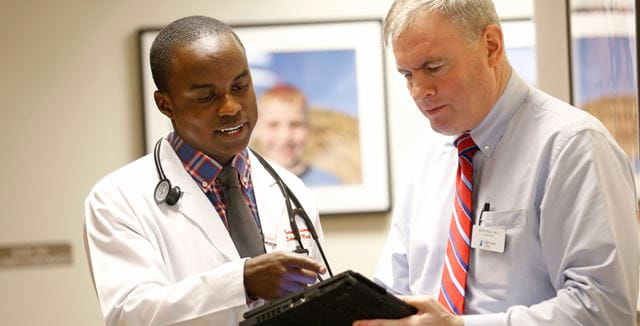
The Department of Pediatrics Faculty Development Committee (FDC) believes in the power of mentorship to support the career development of faculty at all levels. The value of seeking and maintaining mentors can serve to empower and create greater opportunities for growth among faculty members. Conversely, the experience of mentoring has the positive benefits of continued opportunities for learning and satisfaction of giving back to the faculty community in a meaningful way.
Junior Faculty Mentor Panel
The Department of Pediatrics has spearheaded an effort to ensure all junior faculty are supported in their career trajectory through a Junior Faculty Mentorship Panel.
Junior Faculty Expectations
Department of Pediatrics faculty at the rank of assistant professor within five years of completing their training are expected to participate. Midcareer and senior faculty are encouraged to participate, though it is not required.
The department is committed to creating a culture where mentoring is valued and the norm. To that end, division chiefs and the Faculty Development Committee will support junior faculty in the following ways:
- Division chiefs will:
- Deliver the expectation and facilitate mentor suggestions with junior faculty
- Discuss mentor panel progress in yearly evaluations
- The Faculty Development Committee will:
- Serve as facilitators in aiding junior faculty in making, maintaining or mending mentor relationships
- Administer an annual survey to evaluate the junior faculty’s mentor panel progress
Establishing a Junior Faculty Mentor Panel
The creation of a mentoring panel is one of the early and important opportunities to take charge of one’s career. Faculty will assemble their panel as they begin their appointment in the department, with guidance from their division chief.
Each junior faculty member will seek formal mentoring commitment from two to three individuals. Faculty are encouraged to include mentors such as:
- At least one mentor outside their own division and department
- Peer mentors (faculty at the same rank) can also be considered for mutual learning
- Faculty from other institutions
The junior faculty member will convene a mentor panel meeting at least twice yearly. Junior faculty may meet individually with mentors as desired.
Junior faculty will complete a short survey in January of each year to document progress with mentor panel meetings, evaluate impact on their growth and development, and identify areas for future improvement.